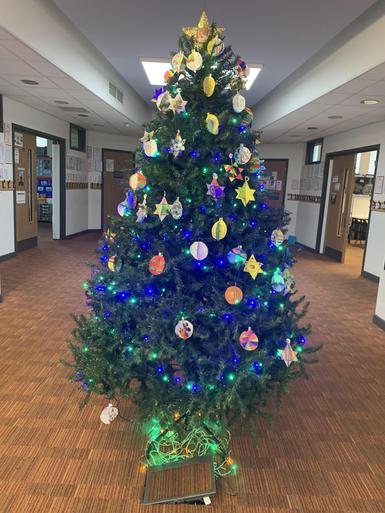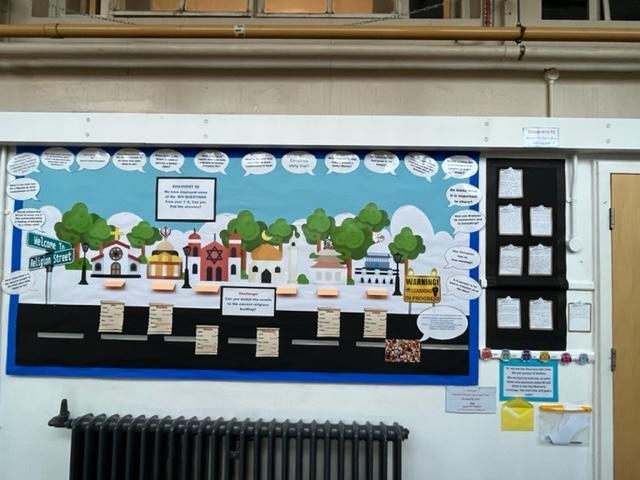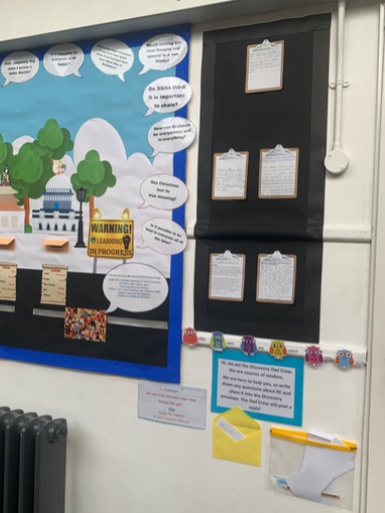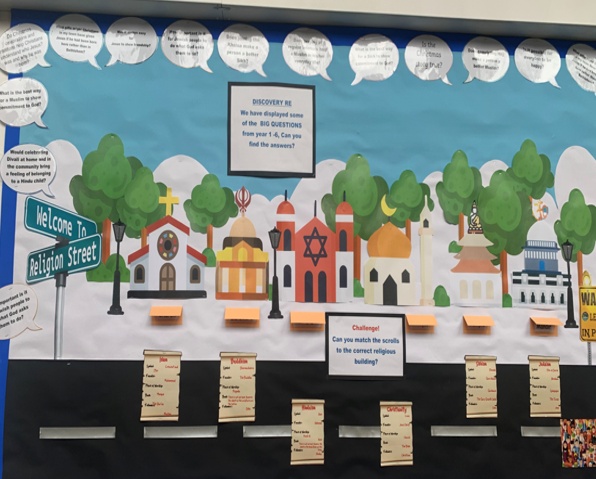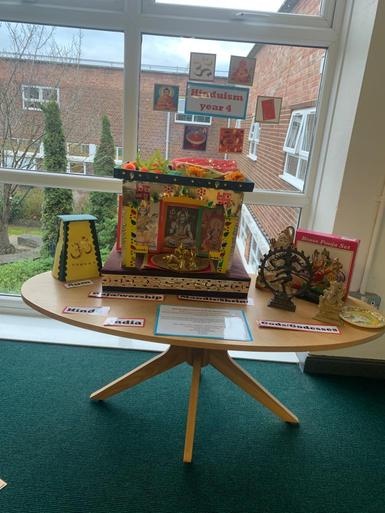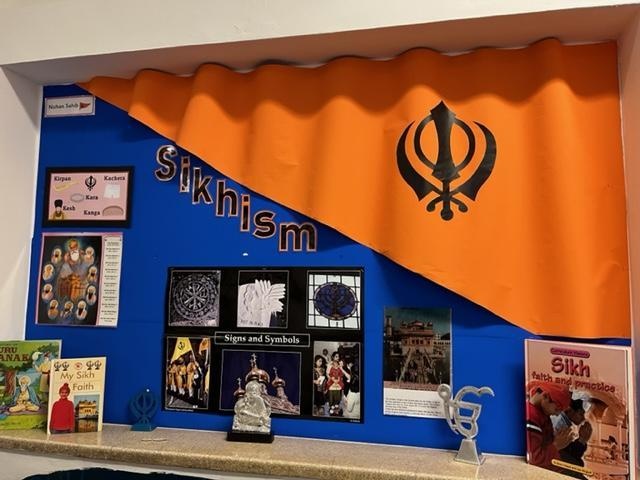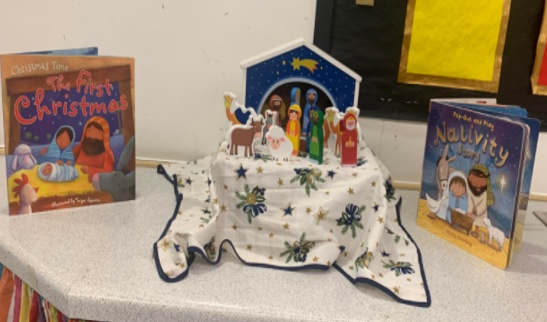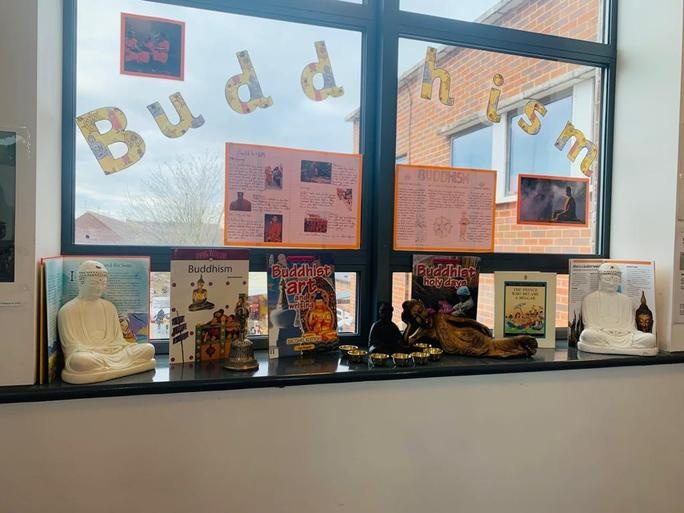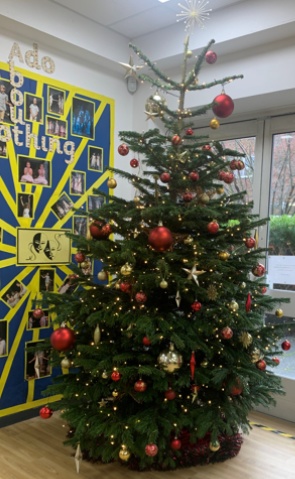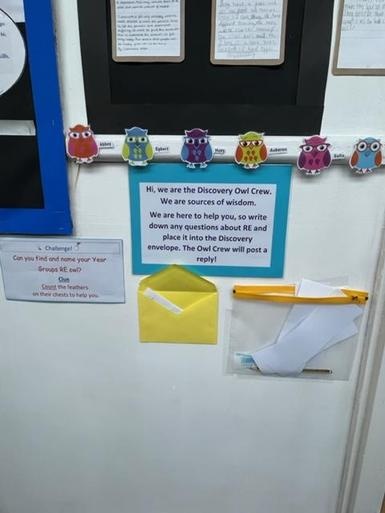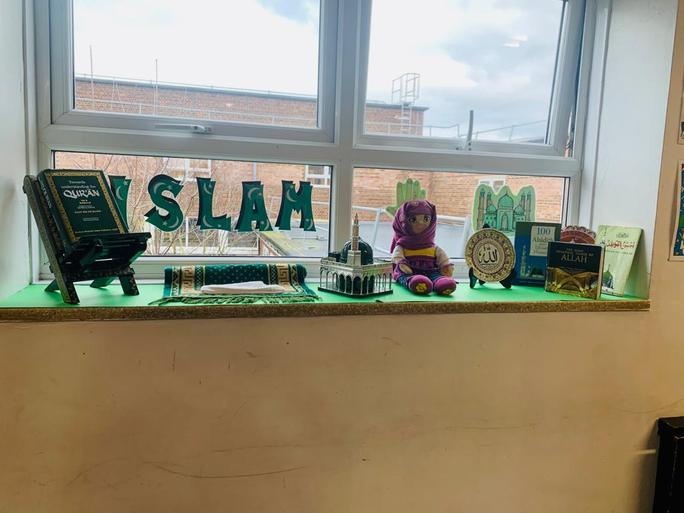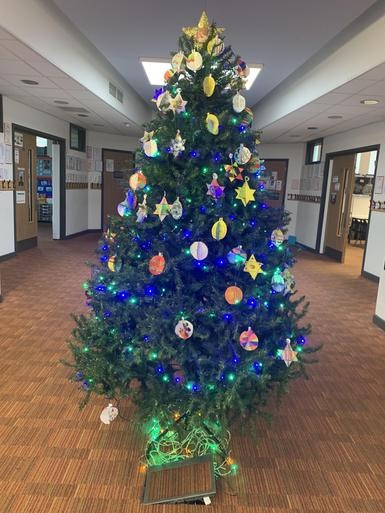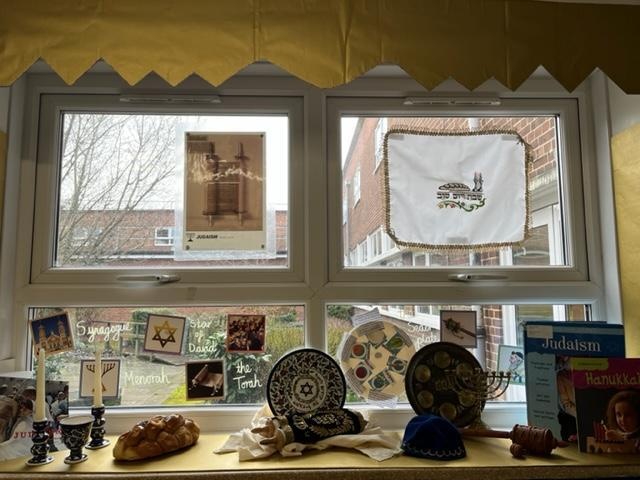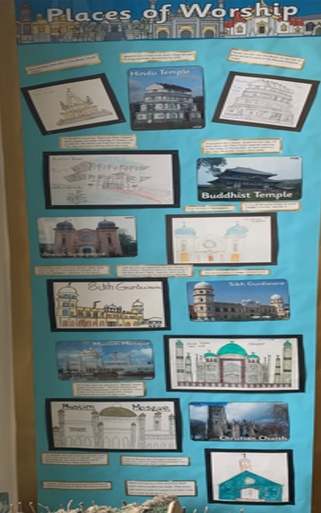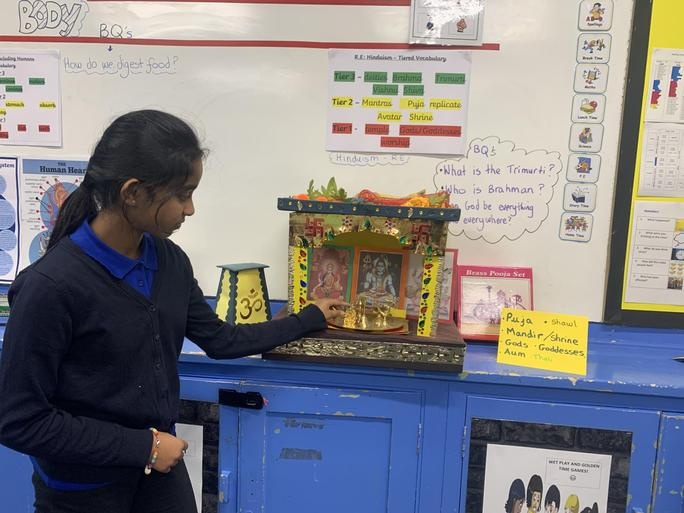Religious Education
Religious Education Overview
At Cranford Park Academy, our R.E curriculum allows the children to learn and explore beliefs from many different world religions, as you can see in our overview for each year group below. This enables the children to have greater awareness of the faith groups that form the community they live in and to develop their confidence to discuss and reflect on their personal beliefs and experiences.
|
Year 1 |
Year 2 |
Year 3 |
Year 4 |
Year 5 |
Year 6 |
|
Christianity & Judaism |
Christianity, Judaism & Islam |
Christianity & Sikhism |
Christianity & Hinduism |
Christianity & Islam |
Christianity & Buddhism |
Around the school, we have many amazing and engaging displays of the faith groups that are taught within our curriculum to further support the children’s exploration and understanding of each faith. These displays allow the children to examine key religious artefacts that they may relate to or have learnt about, which not only gives them a sense of identity but also promotes interest and enquiry into other faiths.
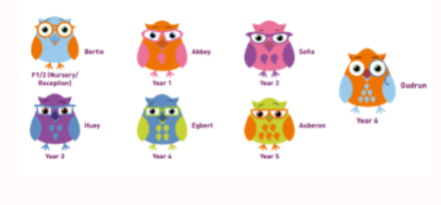
At Cranford Park, the children are taught Religious Education through a scheme called Discovery RE, which adopts an enquiry approach to the subject. Each lesson has a specific enquiry question, which is referred to as the Big Question. The children are encouraged to engage in discussions and ask questions to enhance their understanding of different religions. To help the children engage with the process of enquiry, each year group has a Discovery RE Owl that they can ask questions to during their enquiry lessons. The Owl names translate to wisdom/intelligence in a range of languages, thus highlighting how they are used in this scheme of learning.
Through the use of the Discovery RE scheme, the children are able to show progression in their investigation of religions, practices and other world views at the end of each key stage.
-
At the end of Key Stage 1 (ages 2-7), children are expected to retell, recognise and find meaning. They will also begin to explore, respond sensitively and express ideas and opinions.
-
At the end of Lower Key Stage 2 (ages 7-9) children will move onto describing what it means to be a part of a religion, discover more, and respond thoughtfully.
-
At the end of Key Stage 2 (ages 9-11) children should be able to reflect and make connections between different ideas. Through debates, they will consider, compare and contrast the different faiths they have learnt about previously and make links.
Please see below links to virtual tours of some religious places of worship to give children a clearer understanding and representation of what these would look like in real life.
- https://www.p4panorama.com/panos/Sheikh-Zayed-Grand-Mosque-AbuDhabi-UAE-360-degree-virtual-reality-tour/
- https://www.p4panorama.com/panos/gurudwara-dubai-360degree-virtual-reality-tour/
- http://www.photosbykev.co.uk/panoramas/St_Peters_v3/360pano.html
- http://www.samrohn.com/360-panorama/central-synagogue-new-york-city/
- http://vr360.in/dwarka-html5/index.html
